EU-Sanctioned Aide Accompanies Iran President To UN In New York
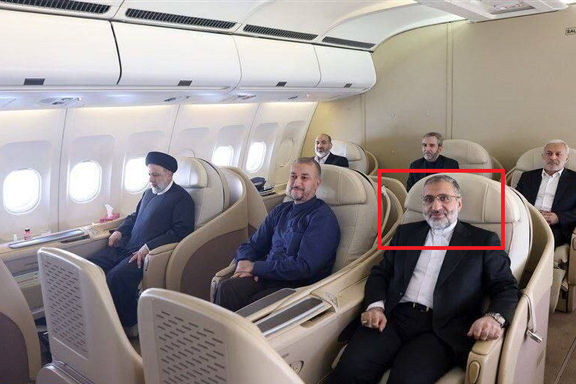
The chief of staff of Iran’s president, who is under sanctions by the European Union like Ebrahim Raisi himself, is accompanying the hardliner president on his trip to New York.

The chief of staff of Iran’s president, who is under sanctions by the European Union like Ebrahim Raisi himself, is accompanying the hardliner president on his trip to New York.
He was first blacklisted in 2011 as Iran’s prisons’ organization chief over “serious human rights violations.”
Gholam-Hossein Esmaili is sanctioned over his "complicity in the massive detention of political protesters and covering up abuses performed in the jailing system."
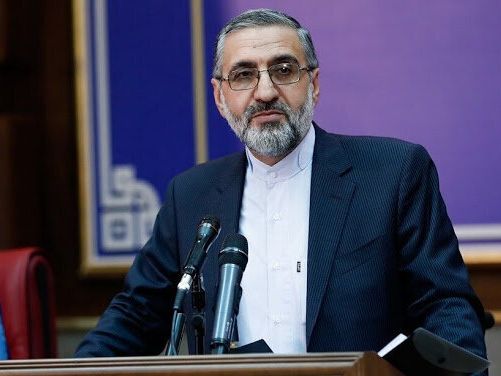
He was the spokesman of the Judiciary of the Islamic Republic from 2019 until 2021, and served as Tehran Province’s chief justice from April 2014 until August 2019. The former prosecutor was appointed as the head of president’s office on August 8, 2021, the same day Raisi also named Mohammad Mokhber, the chairman of the powerful state-owned foundation sanctioned by the United States.
Raisi – who is himself on US and European sanctions list – is currently in the US along with a large entourage to attend the UN Assembly, despite heavy pressure on the Biden administration to deny a visa for him.
Raisi served as Iran’s Judiciary chief before becoming president in August 2021, but he spent most of life in the Islamic judiciary and is accused by human rights groups of taking part in gross violations of human rights. He was a member of a death committee that ordered the killing of thousands of political prisoners in 1988, an involvement he has proudly admitted.
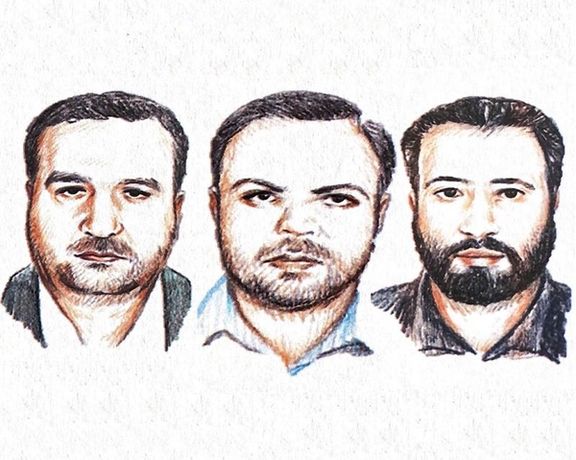
Iran International has obtained information about the specific targets of the latest Israeli air strike on Tehran-linked targets in Syria.
Israel carried out airstrikes on Syria's Damascus International airport and other positions south of the capital on late Friday and early Saturday, September 16 and 17, targeting what is called 'Unit 2250' -- a special Iranian logistics institution run by Tehran’s Revolutionary Guard.
Established as a subset of Unit 2000, the outfit is headquartered in Damascus with many offices across Syria such as the suburbs of the capital as well as Latakia, Hama, Aleppo and Deir ez-Zor.
The unit is in charge of receiving incoming equipment, weapons and personnel from Iran as well as supporting the Iran-backed Lebanese forces in the country. It is also tasked with escorting and hosting senior Iranian officials and their families upon arrival in Syria, which are usually carried out in coordination with senior Syrian authorities.
In the recent attack the warehouses, parking lots and even the main office were targeted by Israeli strikes. “The aggression led to the death of five soldiers and some material damage,” Syria’s official news agency SANA quoted a military source as saying.
According to exclusive information received by Iran International, the unit is under the direction of someone identified only as ‘Seyyed Reza’ while two other employees of the office are identified as Abdollah Ebadi and Meysam Katbi.
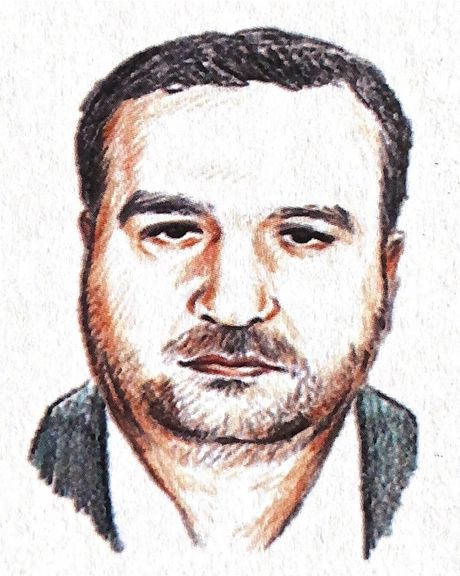
Seyyed Reza is the head of the office in the Damascus branch and has for many years been an a key Iranian asset for its activities in the region. He had earlier worked as the representative of the unit in Tehran for several years.
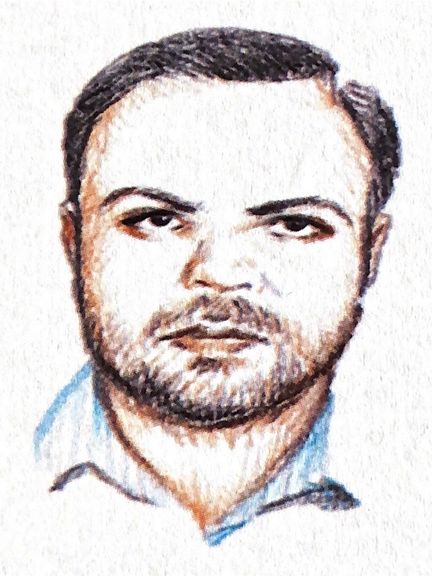
Abdallah Ebadi is one of the senior members of the unit who is in charge of transferring weapons through passenger flights, mainly through delivery of hand luggage from Iran to Syria.
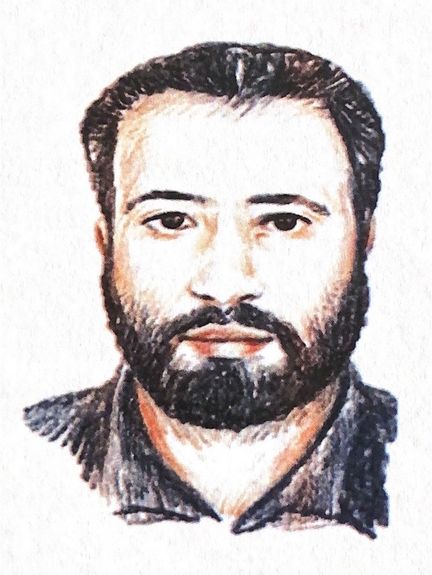
Meysam Katabi is responsible for the transfer of personnel as well as weapons between Iran and Syria. He used to serve in a similar post in the 190th unit of the Quds (Qods) Force, the extra-territorial arm of Iran’s Revolutionary Guard.
Israel has intensified strikes on Syrian airports to disrupt Iran's increasing use of aerial supply lines to deliver arms to allies in Syria and Lebanon including Hezbollah, regional diplomatic and intelligence sources told Reuters.
Tehran has adopted air transport as a more reliable means of ferrying military equipment to its forces and allied fighters in Syria, following disruptions to ground transfers.
A senior Israel Defense Forces officer said on Thursday that Hezbollah and other Iran-backed militia groups are withdrawing from areas in Syria that have been targeted by Israel. The apparent withdrawal of these forces from some regions is “a result of the IDF strikes” in recent weeks. He did not say which parts of Syria he was referring to.
Israel has been targeting Iranian weapons supplies since 2017 to prevent Tehran from expanding its foothold in Syria and transferring more weapons to its proxy forces.
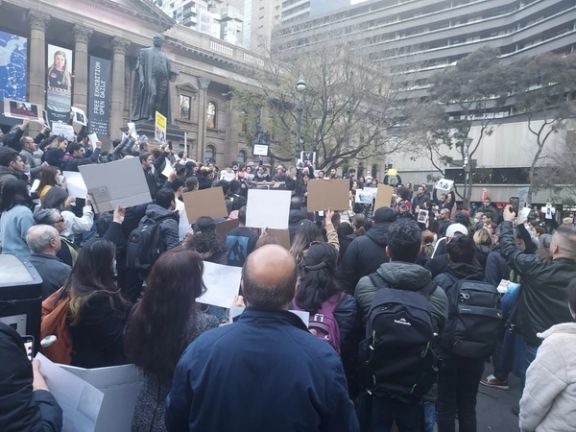
Large numbers of Iranian expatriates and human rights activists have held rallies in solidarity with tens of thousands of people who have poured onto streets in protest to the death of a hijab victim.
While people in several Iranian cities vowed to continue protests against the Islamic Republic on Tuesday, numerous gatherings were held in Canada, Australia and some cities across Europe over the death of the 22-year-old Mahsa (Zhina or Jina) Amiri, who died following a severe head trauma in the hands of the Islamic Republic’s hijab enforcement patrols.
Iranians living in Melbourne, Australia, held a rally outside the city’s main library on Tuesday to protest Mahsa' tragic murder and express sympathy with her family.
Iranians in the Canadian cities of Vancouver and Toronto also held protest rallies, chanting slogans against the Islamic Republic’s authorities and its misogynistic laws. Declaring their solidarity with the protesters in Iran, they chanted "Death to Khamenei" and "Woman, Life, Freedom."
German cities of Cologne (Köln) and Frankfurt as well as the capital Berlin were also scenes of similar protests.
On Sunday and Monday, a number of Iranians held similar rallies in the French capital Paris outside the Iranian Embassy.
In Iran protesters have been emphasizing their personal freedoms including the right to decide what to wear. Unlike most protests in the past few years that were triggered by economic hardship, this round of demonstrations is propelled more by a yearning for social freedoms. Clearly, most protesters are rejecting the very essence of clerical rule and its top symbol, Supreme Leader Ali Khamenei.

Iran has reiterated its offer to send 600,000 tons of fuel to Lebanon over the course of five months to help the country deal with its power shortage.
According to Lebanese TV station Al-Manar, Iranian officials told a visiting Lebanese technical delegation on Tuesday that Tehran is ready to start the shipments.
On Monday, Iran's embassy in Beirut said tankers could be in Lebanon within two weeks. A Lebanese energy ministry spokesperson said they were unaware whether the fuel import deal had been struck but said "any gift from anywhere is welcome".
If the deal goes through, it would be Iran's first supply of fuel directly to the Lebanese state. The Islamic Republic previously sent some shipments of fuel to its ally Hezbollah, an armed group that is part of Lebanon's coalition government.
Earlier in September, two Lebanese government sources said Beirut was about to send a delegation to Iran for talks on acquiring “free fuel” after Iran's Ambassador Mojtaba Amani proposed an Iranian "gift" of fuel to the country.
Lebanon has been struggling with outages for decades but its economic meltdown since 2019 has drained state reserves and slowed down imports of fuel for government plants, leaving most of the country with just one or two hours of state-provided electricity per day.
Lebanon has natural gas fields in the Mediterranean Sea but a boundary dispute with Israel has so far prevented gas extraction that could help its economy.
The delivery of free fuel to another country is a sensitive issue in Iran where an economic crisis has impoverished millions of people, while the government has failed to reach a nuclear deal with the West, which could end economic sanctions imposed by the United States since 2018.
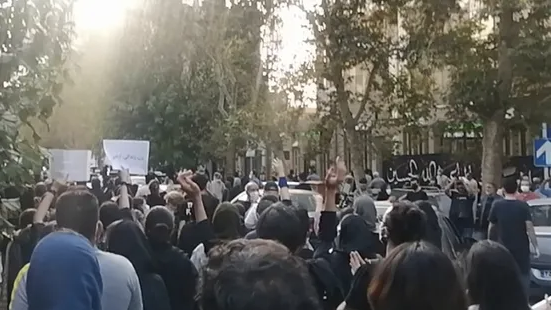
SpaceX CEO Elon Musk has said that his company will ask for an exemption from US sanctions on Iran to provide the firm's Starlink satellite broadband Internet access for Iranians.
Musk made the announcement in a tweet on Monday as Iran is engulfed in widespread protests over the death of a young woman in the custody of hijab enforcement patrols.
Some people on Twitter had asked Musk to provide the satellite-based internet stations as he did for the people of Ukraine after the Russian invasion. However, most Ukrainians have not been able to access the internet via Starlink because it needs special equipment and is somehow too complicated to set up.
Since protests over the death of Mahsa Amini started in several cities across Iran, including in the capital Tehran, internet connection was significantly slowed down, a strategy the government usually uses during protests in Iran.
Authorities disrupt the Internet to prevent news of unrest reaching the rest of the country and abroad, and to prevent protesters from galvanizing support in nearby regions.
Operated by Elon Musk’s company SpaceX, Starlink provides internet access coverage to most of the Earth.
In May, following the shutdown of internet connection after popular protests over bread prices in southwestern Iran, Victoria Coates, who served as senior advisor to the energy secretary in the Trump administration, called on Musk to activate Starlink satellite access for Iranians.
Iran’s former communication minister Mohammad-Javad Azari-Jahromi had warned Iran’s parliament against plans to restrict Internet access, saying that “if you do not provide people with the right service, others will”.
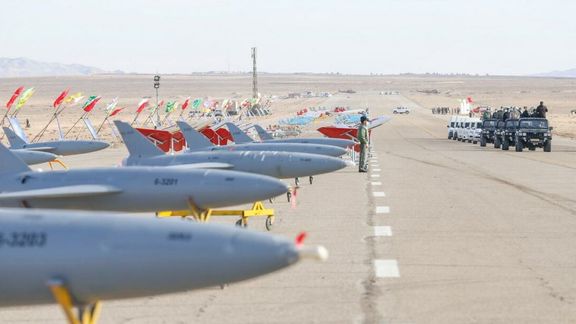
The US on Monday said it added three Iranian cargo planes serving Russia to a list of aircraft violating US export controls under the Biden administration's sanctions.
Using commercially available data, the Commerce Department identified Boeing 747s operated by Mahan Air, Qeshm Fars Air and Iran Air transporting goods, including electronic items, to Russia in apparent violation of stringent US export controls on Russia related to its invasion of Ukraine. These are the first three Iranian airplanes identified, the department said.
The department has warned that any refueling, maintenance, repair, spare parts or services violate US export controls and subject companies to US enforcement actions.
Iran has publicly announced its intention to expand cooperation with Russia in the aviation sector by providing spare parts for its airplanes, the Commerce Department said.
The US and Ukraine have said that Iran has already provided military drones to Russia that are being used in the war.
With the additions, there were 183 aircraft on the list for apparent violations of US export controls. The three Iranian airlines identified Monday were already subject to a variety of restrictions by the US government.
Assistant Secretary of Commerce for Export Enforcement Matthew Axelrod said US "controls, especially on items such as electronics and aircraft parts, have degraded Russia’s defense industrial base, severely restricted their access to the world economy."
"When Russia seeks to engage pariah states like Iran in order to backfill for what the international community has cut off, we will take action to thwart such attempts and disrupt such connections," he added.
Reporting by Reuters